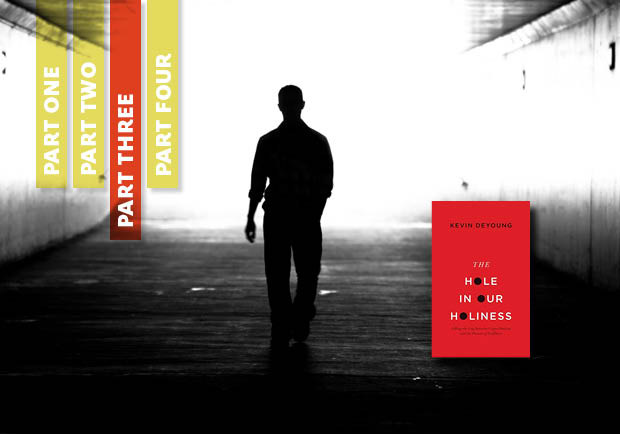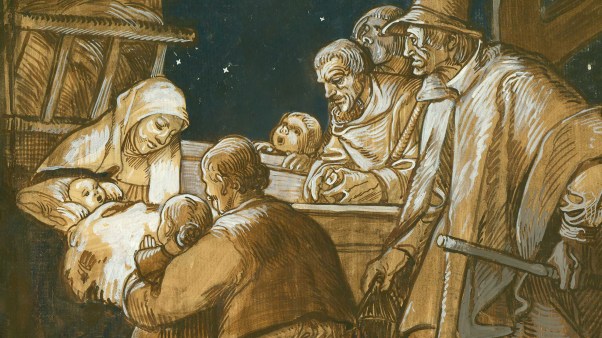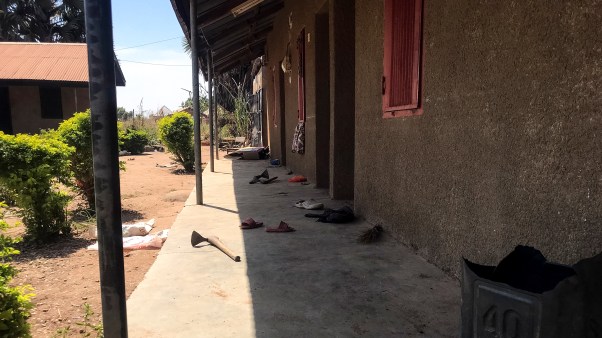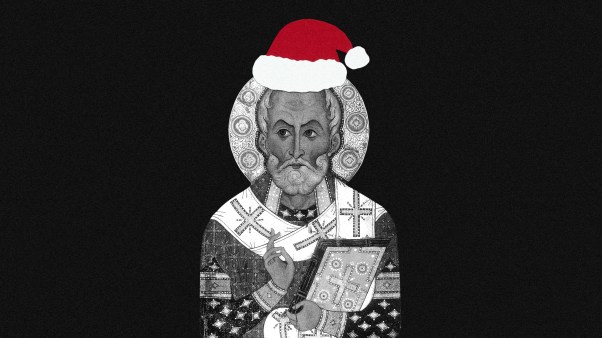This is the third of a four-part series of reviews looking at Kevin DeYoung's The Hole in Our Holiness. See parts one and two.
The Hole in Our Holiness: Filling the Gap between Gospel Passion and the Pursuit of Godliness
Crossway
160 pages
$23.10
Kevin DeYoung's The Hole in Our Holiness begins with an underlying premise that many Christians have ignored, misunderstood, or abandoned: God's call for us to become holy. DeYoung, a writer for The Gospel Coalition and a pastor of a theologically Reformed church, has a great sense of where Christians have missed the mark when it comes to following Jesus. It is wonderful to see Christian leaders of various theological perspectives calling us toward holiness, not just those associated with the holiness tradition pioneered by John Wesley's brand of Methodism.
This "hole" in our holiness is the result of many factors, according to DeYoung. Holiness is often avoided because keeping a list of things to abstain from falls short of stirring us toward Christ. We can't ignore our desire to push the boundaries of what God would allow for us to do. Our focus on Christian liberty often has us wandering down ungodly paths. Also, we don't want to come across as too judgmental, so we avoid labeling certain behaviors as ungodly. And I haven't even mentioned how scared we are of words such as "duty" or "effort" for Christ. They seem to go against what we believe about the gospel. Christians are thus living with a gap between their love for the gospel and their pursuit of godliness.
Somewhere along the line we've started to believe that being saved by grace negates God's desire for us to pursue holiness. Certainly, we need the reminder that it is God who is at work within us, and his work is not done (Phil. 1:6). Those of us who God has justified are works in progress—God is making us holy. But we all need a nudge to draw nearer to the God who sanctifies us.
With this in mind, DeYoung clearly tries to address the entire body of Christ with this book. More specifically he addresses younger generations who are in Christ but whose lives do not reflect the things of God. These are the people who may call themselves followers of Christ but whose lives do not reflect that statement.
Beyond the Author's World
The strength of the book is found in the way DeYoung describes how we move ourselves to godly actions. In our sin, we are not damaging our true identity of being connected to Christ. This remains secure, as we are united to the Father through the Spirit's gracious work. Instead, it is our communion with Christ (our response to the Spirit's gracious work) which begins to waver as we place our affections in other places. It ebbs and flows based on our obedience. In pursuing Christ we must first see ourselves for who we truly are; or, as DeYoung says, "Only by knowing our position in Jesus can we begin to live like Jesus." With an identity centered on how God sees us, we can seek godly behavior through gratitude. We seek God through God. It is, in the first place, his action that allows us to show our love for him through our lives.
Written in just under 150 pages, DeYoung's book is accessible in length , while not sacrificing the depth needed to discuss the topic of holiness well. Where DeYoung may miss the mark is in his target audience. He has in mind to draw younger generations and those falling away from Christ toward a renewed pursuit of holiness, but I wonder if the book's strong theological and biblical tone will be a hindrance for many. This isn't to say a book on holiness should avoid those areas, but the book is closer to a seminary textbook than an easy fiction read. In trying to reach out to those far from God, the book seems to ask the reader to come into the author's world rather than first engaging the subject of holiness from the perspective of the target audience.
My worry is that DeYoung is so entrenched in a (Reformed) Christian subculture that he may not relate well to those who would prefer to stay away from it—and the jargon that goes with it. DeYoung does effectively look at God's affection for the sinner as paving a way toward holiness, but all this is surrounded with an in-depth and systematic approach to the Bible. Those far from Christ need someone to point out the damage of sin—helping us see the whole story of the Bible leading in this direction—all while pointing toward a God who loves us enough to change us. But the book seems stuck, at times, between speaking to those who are falling away from God, and trying to write the most biblically correct treatise on holiness.
No question, DeYoung has written a powerful book that is worth encouraging many to spend time with. For those who are well versed in DeYoung's writings, this book will meet and exceed expectations. He has successfully written a book on pursuing holiness from a Reformed theological perspective, something much easier said than done.
My hope, though, is that he hasn't missed an opportunity to draw back to Christ those who are too lost in their own sin and shame to see beyond it. Clearly DeYoung does speak to this, but I wish it could have received more than a few pages of attention. I would highly recommend this book to anyone who senses their passion for godliness to be waning, but be prepared to sift through lengthy theological discussion.
Tyler Braun is a pastor in Portland, Oregon, and the author of Why Holiness Matters: We've Lost our Way—But We Can Find it Again (Moody). He blogs at Man of Depravity.










